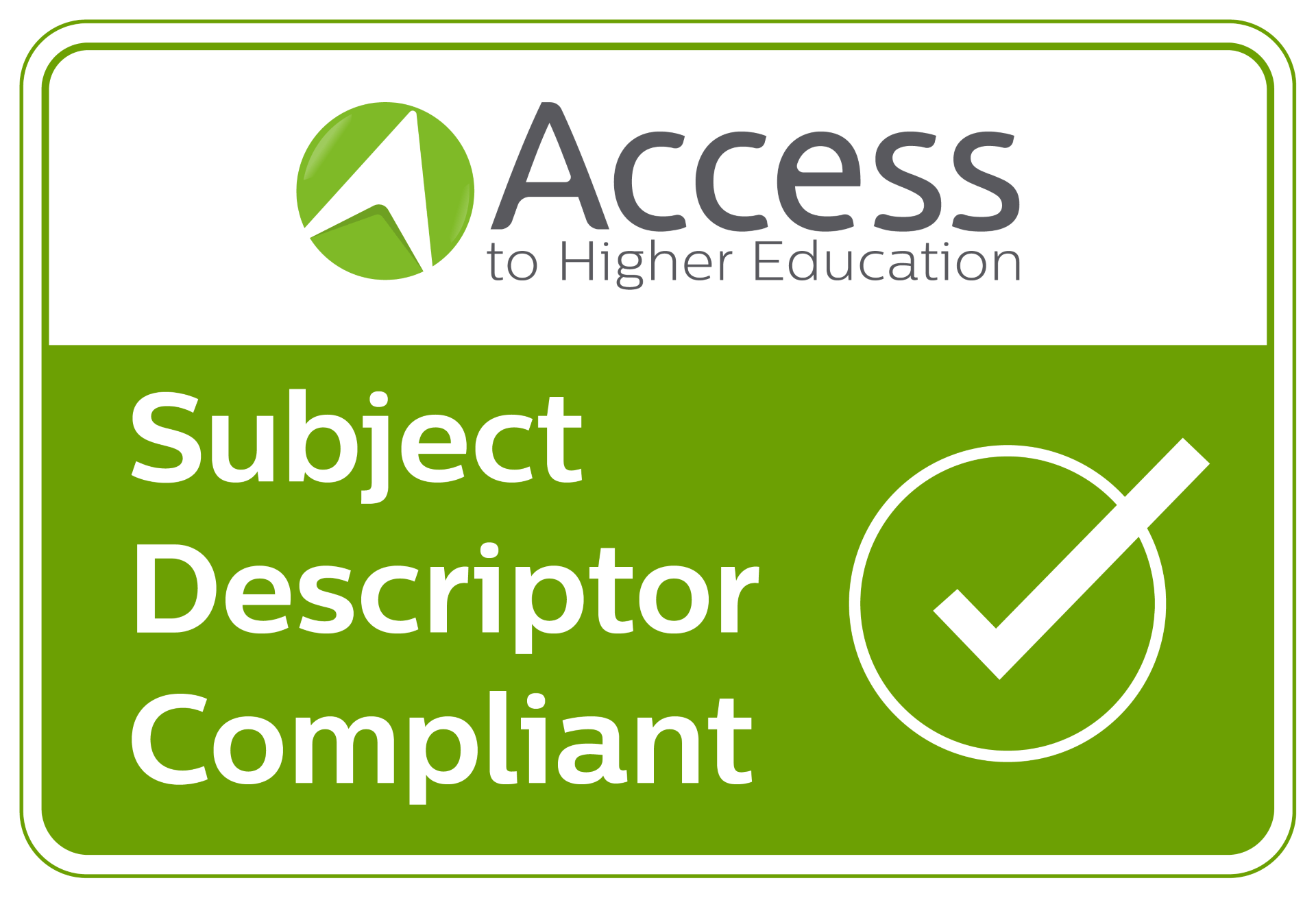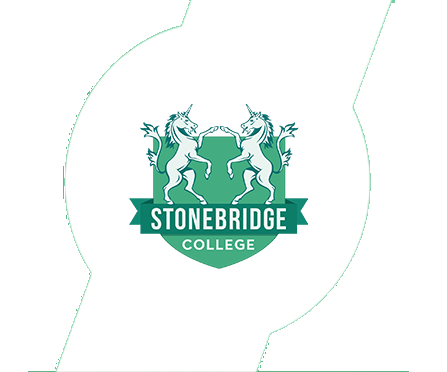Access to Higher Education Diploma (Radiography).

Access to Higher Education Diploma (Radiography)
Your Course at a Glance
- Get university ready within 1 year
- Qualification equivalent to 3 A Levels
- Take first steps towards a career in radiography
- Benefit from tutor support
- 100% online
- No exams
About Your Diploma

Getting Started
On successful completion of the Access to Higher Education Diploma (Radiography), (QAA aim code: 4001471X), you will receive a Skills & Education Group Access, QAA recognised, Access to Higher Education Diploma at Level 3. As part of your programme, you will also receive help as well as guidance on your university application and the research you need to do to get the most out of your diploma.
An access validating agency with a strong social purpose to recognise achievement, particularly for those who have benefited least from their previous educational experiences, Skills and Education Group Access supports the needs of learners, providers, businesses and communities.
As part of the Awarding Organisation requirements, to receive certification for this training course you must be subscribed for a minimum period of 9 months. The minimum subscription period is measured in total months subscribed, which do not have to be consecutive.
This means that if your personal circumstances change (time available to study, financial pressures etc.), you can cancel/pause your study and payments at any time. If you decide to return to your studies at a later date, you can simply reactivate your subscription and continue from where you left off (we will save all your course progress). Using our subscription service you are not tied into a credit agreement.
To study an Access to HE Diploma you must be resident in the UK and have a UK postcode.
You must hold Level 2 qualifications in both English and Maths, or be working towards them alongside studying your Access to Higher Education Diploma.
University Entry Criteria
It must be reiterated that each university will set its own admission criteria. So, you must check with your desired institution if your Access to HE Diploma and other qualifications will be accepted.
In many cases, to get started on healthcare courses at university, you will need:
- A certain number of credits passed with a merit or a distinction grade
- A face-to-face interview at the university
- Literacy and numeracy assessments provided by the university
- Course-related work placements or work experience
- GCSE Grade C/4 or above in Maths and English (or equivalent Level 2 such as Functional Skills/Key Skills, etc.)
It is your responsibility to check that your Access to HE Diploma will be accepted as part of these entry requirements for your chosen degree. Stonebridge will not be held accountable if completing this Access to Higher Education Diploma doesn’t secure you a position with a higher education institution.
Minimum Age Restriction
This course is ideally suited to those who have completed full-time education but have not achieved the grades required to get into university.
Average Completion Timeframe
The average time it takes our learners to complete the course is 9-12 months.
Assessment Requirements
A range of assessment methodologies are used, including: academic report, essay, case study analysis, illustrated report, journal article, portfolio, academic poster, presentation (video and audio recording), developing promotional activity, series of questions, academic writing skills tasks.
In addition to the qualification units, you will also be required to complete short introductory tasks at the start of your course to support the development of your academic study skills.
Exams Required
There are no exams included in the assessment of the course.
Additional Requirements
Learners must be actively studying for a minimum of six months before results can be ratified and certificates ordered. The six month period does not start until you have completed and passed the course induction and you must be submitting assignments regularly (in line with the deadlines in your Individual Learning Plan) to meet this six month requirement. Certificates can only be issued once your course is paid for in full.
Certification Timeframe
You can expect to receive your certificate 12-16 weeks from your final assignment being marked and graded, depending on the time of year. You will be provided with regular updates throughout the certification process so that you are fully informed of your individual timeframes.
Module 1: Academic Writing Skills
Upon successful completion of this module, you will:
- Be able to structure a written response
- Be able to develop a structured response to a plan
- Be able to present the response appropriately for audience and purpose
- Understand how to apply academic writing principles to own work
Module 2: Reading and Note Making
Upon successful completion of this module, you will:
-
Understand a range of reading strategies
-
Understand the use of language in terms of the purpose and context of a range of texts
-
Be able to use methods for developing notes from a range of sources
Module 3: Professional Behaviours: Nursing and Health Professionals
Upon successful completion of this module, you will:
- Understand the characteristics required to be a health professional making reference to the relevant professional and regulatory body's and the Professional Standards Authority standards for registration in relation to, patient-centred care and concepts of professionalism as they apply to conduct, performance and ethics of those on the relevant professional and regulatory body's register
- Understand effective communication and teamworking skills
- Know how to manage risk and deal effectively with problems
- Reflect on own personal and professional practice and develop a personal and professional development plan
Module 3: Atoms, Bonds and Structure
Upon successful completion of this module, you will:
-
Understand atomic structure
-
Understand bonding, structure and properties
-
Be able to analyse intermolecular forces
Module 4: The Structure and Function of Cells
Upon successful completion of this module, you will:
-
Understand cellular structure and organisation
-
Be able to analyse cellular activity
-
Be able to analyse the cell cycle
Module 5: The Properties and Applications of the Electromagnetic Spectrum
Upon successful completion of this module, you will:
- Understand electromagnetic waves
- Understand visible and ultraviolet light including their applications
- Understand microwaves and infrared light
- Understand ultraviolet light and infrared light in terms of their potential to become hazardous
- Understand the use of x-rays in medical settings
Module 6: Human Musculoskeletal System
Upon successful completion of this module, you will:
-
Understand the human skeleton and how it relates to locomotion
-
Be able to analyse muscle contraction
-
Understand the development of bone
Module 8: Numeracy in a Health Context
Upon successful completion of this module, you will:
Understand and use the four rules of number including in relation to units of measure
Understand and use decimals, fractions and percentages, including in relation to units of measure
Know how to use a calculator to solve problems and use appropriate tools to check their answers
Module 8: The Laws of Physics
Upon successful completion of this module, you will:
- Understand force and motion
- Understand energy conservation and momentum
- Understand wave motion
- Understand reflection and refraction
- Understand magnetism and electrical current behaviours
Module 9: Chemistry of Drugs and Medicines
Upon successful completion of this module, you will:
-
Understand the key definitions used in medicinal chemistry
-
Understand the significance of the molecular structure of drugs upon their function
-
Understand analytic methods used for drug detection
-
Understand the importance of isomerism in drug action
-
Be able to analyse common processes involved in drug design
Module: Endocrine System
-
Understand terms hormone and endocrine gland
-
Be able to analyse homeostasis and feedback mechanisms
-
Understand the action of hormones
Module 11: Medical Physics: Waves ECGs and Radiography
Upon successful completion of this module, you will:
-
Understand the structure and operation of the eye and the correction of simple eye defects
-
Understand the structure of the ear, the process of hearing and identify and explain simple methods of detecting hearing abnormalities through interpretation of simple tests
-
Understand the electromagnetic spectrum and explain how different types of electromagnetic waves are used in medical physics
-
Understand medical uses of ultrasound imaging techniques
-
Understand therapeutic uses of radioactivity
-
Be able to analyse techniques used to monitor the functioning of the nervous and cardiovascular systems
Module 12: Nervous System
Upon successful completion of this module, you will:
-
Understand the basic structure and function of the nervous system
-
Understand the nature of nerve impulses
-
Be able to assess the principles of synaptic transmission
Module 14: Kinetics, Energetics, Equilibria and Acid-Base Equilibria
Upon successful completion of this module, you will:
-
Understand chemical kinetics
-
Understand energetics
-
Understand chemical equilibria
-
Understand acid-base equilibria
Module 15: Radioactivity in Medicine
Upon successful completion of this module, you will:
- Understand the nature of radioactive decay
- Understand the need for safety precautions when handling radioactive isotopes
- Understand the beneficial uses of radioactive isotopes
In addition to the qualification units, you will also be required to complete a course induction which comprises of three short introductory tasks to support the development of your academic study skills.

A range of units make up this qualification, with an assignment at the end of each. You will submit your work to your tutor for marking and tailored feedback. To achieve the Access to HE Diploma (Radiography), you must acquire 60 credits in total.
Of these credits, 45 will be taken from graded units which focus on the academic subject areas included in the course. The remaining 15 come from ungraded units included to help you to improve your academic writing and study skills.
In addition to the qualification units, you will also be required to complete short introductory tasks at the start of your course to support the development of your academic study skills.
As part of your programme, you will also receive help as well as guidance on your university application and the research you need to do to get the most out of your diploma.
VALUE
Annual
- 100% Online
- Full Tutor Support
- No Credit Checks or Credit Agreement
Monthly
- 100% Online
- Full Tutor Support
- No Credit Checks or Credit Agreement
Free 7-Day Trial
Register for a 7-day FREE trial (your payment details will be taken at checkout but not charged). Once the trial period ends you will be charged the monthly fee unless you cancel. Cancel Anytime. No Commitment.- 100% Online
- Full Tutor Support
- No Credit Checks or Credit Agreement
Your Course at a Glance
- Get university ready within 1 year
- Qualification equivalent to 3 A Levels
- Take first steps towards a career in radiography
- Benefit from tutor support
- 100% online
- No exams
About Your Diploma

Getting Started
On successful completion of the Access to Higher Education Diploma (Radiography), (QAA aim code: 4001471X), you will receive a Skills & Education Group Access, QAA recognised, Access to Higher Education Diploma at Level 3. As part of your programme, you will also receive help as well as guidance on your university application and the research you need to do to get the most out of your diploma.
An access validating agency with a strong social purpose to recognise achievement, particularly for those who have benefited least from their previous educational experiences, Skills and Education Group Access supports the needs of learners, providers, businesses and communities.
Module 1: Academic Writing Skills
Upon successful completion of this module, you will:
- Be able to structure a written response
- Be able to develop a structured response to a plan
- Be able to present the response appropriately for audience and purpose
- Understand how to apply academic writing principles to own work
Module 2: Reading and Note Making
Upon successful completion of this module, you will:
-
Understand a range of reading strategies
-
Understand the use of language in terms of the purpose and context of a range of texts
-
Be able to use methods for developing notes from a range of sources
Module 3: Professional Behaviours: Nursing and Health Professionals
Upon successful completion of this module, you will:
- Understand the characteristics required to be a health professional making reference to the relevant professional and regulatory body's and the Professional Standards Authority standards for registration in relation to, patient-centred care and concepts of professionalism as they apply to conduct, performance and ethics of those on the relevant professional and regulatory body's register
- Understand effective communication and teamworking skills
- Know how to manage risk and deal effectively with problems
- Reflect on own personal and professional practice and develop a personal and professional development plan
Module 3: Atoms, Bonds and Structure
Upon successful completion of this module, you will:
-
Understand atomic structure
-
Understand bonding, structure and properties
-
Be able to analyse intermolecular forces
Module 4: The Structure and Function of Cells
Upon successful completion of this module, you will:
-
Understand cellular structure and organisation
-
Be able to analyse cellular activity
-
Be able to analyse the cell cycle
Module 5: The Properties and Applications of the Electromagnetic Spectrum
Upon successful completion of this module, you will:
- Understand electromagnetic waves
- Understand visible and ultraviolet light including their applications
- Understand microwaves and infrared light
- Understand ultraviolet light and infrared light in terms of their potential to become hazardous
- Understand the use of x-rays in medical settings
Module 6: Human Musculoskeletal System
Upon successful completion of this module, you will:
-
Understand the human skeleton and how it relates to locomotion
-
Be able to analyse muscle contraction
-
Understand the development of bone
Module 8: Numeracy in a Health Context
Upon successful completion of this module, you will:
Understand and use the four rules of number including in relation to units of measure
Understand and use decimals, fractions and percentages, including in relation to units of measure
Know how to use a calculator to solve problems and use appropriate tools to check their answers
Module 8: The Laws of Physics
Upon successful completion of this module, you will:
- Understand force and motion
- Understand energy conservation and momentum
- Understand wave motion
- Understand reflection and refraction
- Understand magnetism and electrical current behaviours
Module 9: Chemistry of Drugs and Medicines
Upon successful completion of this module, you will:
-
Understand the key definitions used in medicinal chemistry
-
Understand the significance of the molecular structure of drugs upon their function
-
Understand analytic methods used for drug detection
-
Understand the importance of isomerism in drug action
-
Be able to analyse common processes involved in drug design
Module: Endocrine System
-
Understand terms hormone and endocrine gland
-
Be able to analyse homeostasis and feedback mechanisms
-
Understand the action of hormones
Module 11: Medical Physics: Waves ECGs and Radiography
Upon successful completion of this module, you will:
-
Understand the structure and operation of the eye and the correction of simple eye defects
-
Understand the structure of the ear, the process of hearing and identify and explain simple methods of detecting hearing abnormalities through interpretation of simple tests
-
Understand the electromagnetic spectrum and explain how different types of electromagnetic waves are used in medical physics
-
Understand medical uses of ultrasound imaging techniques
-
Understand therapeutic uses of radioactivity
-
Be able to analyse techniques used to monitor the functioning of the nervous and cardiovascular systems
Module 12: Nervous System
Upon successful completion of this module, you will:
-
Understand the basic structure and function of the nervous system
-
Understand the nature of nerve impulses
-
Be able to assess the principles of synaptic transmission
Module 14: Kinetics, Energetics, Equilibria and Acid-Base Equilibria
Upon successful completion of this module, you will:
-
Understand chemical kinetics
-
Understand energetics
-
Understand chemical equilibria
-
Understand acid-base equilibria
Module 15: Radioactivity in Medicine
Upon successful completion of this module, you will:
- Understand the nature of radioactive decay
- Understand the need for safety precautions when handling radioactive isotopes
- Understand the beneficial uses of radioactive isotopes
In addition to the qualification units, you will also be required to complete a course induction which comprises of three short introductory tasks to support the development of your academic study skills.

A range of units make up this qualification, with an assignment at the end of each. You will submit your work to your tutor for marking and tailored feedback. To achieve the Access to HE Diploma (Radiography), you must acquire 60 credits in total.
Of these credits, 45 will be taken from graded units which focus on the academic subject areas included in the course. The remaining 15 come from ungraded units included to help you to improve your academic writing and study skills.
In addition to the qualification units, you will also be required to complete short introductory tasks at the start of your course to support the development of your academic study skills.
As part of your programme, you will also receive help as well as guidance on your university application and the research you need to do to get the most out of your diploma.
Our Advisors.
Our team of course advisors are keen to help.
Call us now on 0121 392 8288
Alternatively, please complete the form below and we’ll get back to you as soon as possible.
Our student support team is here for you.











